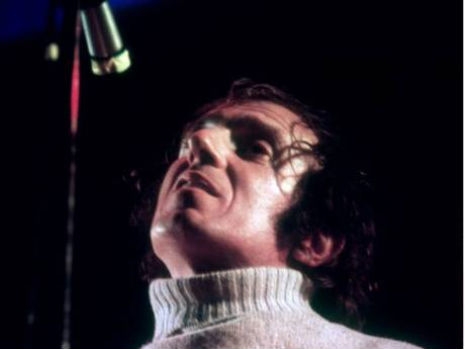
In 1964, The British Labour Party was elected into government with a slim majority of 4 seats. Such a small majority made governing the country difficult for canny Prime Minister, Harold Wilson. Therefore, after 17 months in power, Wilson called a second election. In support of winning re-election, the Labour Party’s magazine, Tribune asked a selection of writers and artists who they would vote for in the 1966 General Election. In response, sensing Labour might not hold to their socialist ideals, poet Christopher Logue wrote the poem “I shall vote Labour.”
I shall vote Labour
I shall vote Labour because
God votes Labour.
I shall vote Labour to protect
the sacred institution of The Family.
I shall vote Labour because
I am a dog.
I shall vote Labour because
upper-class hoorays annoy me in expensive restaurants.
I shall vote Labour because
I am on a diet.
I shall vote Labour because if I don’t
somebody else will:
AND
I shall vote Labour because if one person
does it
everybody will be wanting to do it.
I shall vote Labour because if I do not vote Labour
my balls will drop off.
I shall vote Labour because
there are too few cars on the road.
I shall vote Labour because I am
a hopeless drug addict.
I shall vote Labour because
I failed to be a dollar millionaire aged three.
I shall vote Labour because Labour will build
more maximum security prisons.
I shall vote Labour because I want to shop
in an all-weather precinct stretching from Yeovil to Glasgow.
I shall vote Labour because
the Queen’s stamp collection is the best
in the world.
I shall vote Labour because
deep in my heart
I am a Conservative.
Christopher Logue was a poet, writer, journalist, dramatist, screenwriter, actor and performer. Born in Portsmouth, in 1926, Logue was an only child of middle-aged parents. After school, he served in the Black Watch regiment, from which he was given a court-martial for selling stolen pay books, and given a 16-months’ jail sentence.
On release, he moved to Paris and started his career as a writer and poet, ‘out of complete failure to be interested by what was happening in London at the time.’
‘It was so drab. There was nowhere to go. You couldn’t seem to meet any girls. If you went up to London in 1951, looking for the literary scene, what did you find? Dylan Thomas. I thought that if I came to the place where Pound flourished, I might too.’
In Paris, Logue met writer Alexander Trocchi (who saved Logue from an attempted suicide), and the pair set-up and edited the legendary literary magazine Merlin, which premiered work by Samuel Beckett, Eugene Ionesco, Chester Himes, as well as Logue and Trocchi. The pair also wrote pornographic novels for Maurice Girodias’ Olympia Press, and briefly met William S. Burroughs, Allen Ginsberg and Gregory Corso in the late 1950s.
George Whitman, propietor of Shakespeare and Co., described the pairing of Trocchi and Logue as:
‘True bohemians, Beats before Beats officially existed. Christopher was the scruffy poet, quite down and out most of the time. He definitely fancied himself as Baudelaire or somebody like that.’
In Paris, Logue toyed with Marxism, and was once famously put down by the author Richard Wright.
‘You’ve got nothing to fight for, boy—you’re looking for a fight. If you were a black, boy, you’re so cheeky you’d be dead.’
But Logue lost none of his mettle, or his socialist convictions and he continued to be a gadfly throughout his life. In the 1960s, he collaborated with Lindsay Anderson, giving poetry readings at the National Film Theater between features. He was a pacifist and a member of Campaign for Nuclear Disarmament, taking part with Bertrand Russell on the marches to Aldermarston.
He appeared at Peter Cook’s club The Establishment and wrote songs for jazz singer Annie Ross, and had one recorded by Joan Baez. He also appeared at the Isle of Wight Rock Festival, and contributed the wonderfully bizarre “True Stories” to Private Eye magazine. He acted for Ken Russell in The Devils, wrote the screenplay for Russell’s Savage Messiah, and acted in Terry Gilliam’s Jabberwocky. Logue’s poetry was incredibly popular, even appearing in posters throughout the London Underground. His most famous works were Red Bird, a jazz colaboration with Tony Kinsey, and War Music, a stunning and critically praised adaption of Homer’s Illiad. He was awarded the 2005 Whitbread Poetry Prize for his collection Cold Calls.
Logue died in 2011, and Wilson won the 1966 election with a majority of 96 seats.
This is Christopher Logue reading “I shall vote Labour” in 2002, as filmed by Colin Still.